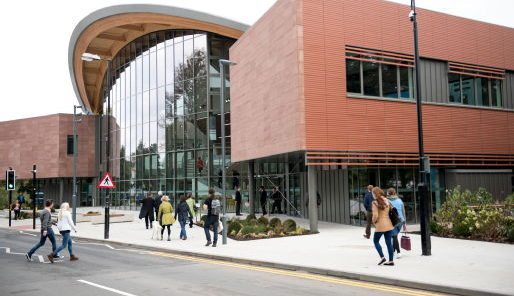Does it really matter which university you study at?
With tuition fees permanently rising, and university league tables giving their top spot to different institutions, the choice of where you get your degree is more complicated than ever. But if you’re highly likely to come out with a degree at the end of your course, does it really matter where you spend three years getting it?
The obvious answer to this is yes. It doesn’t take much time looking over the Times Higher Education Supplement to realise that a degree from Cambridge will likely get you further in life than the same degree from London Metropolitan. But if you look at universities that rank closer together, that gap starts to narrow drastically, particularly if you consider academic courses at Russell Group universities. In reality, a degree from Warwick is probably about as valuable as a degree from Birmingham, Durham, or even Oxford or Cambridge.
Personally, I’ve begun to find that it’s not my degree, but my extra-curricular activities, that better shape my future prospects. Every year, thousands of new Humanities graduates flood into the job market from Russell Group universities alone. Almost every single one of these will have been taught the exact same set of skills in order to succeed in the academic endeavours, making it incredibly difficult to stand out if you’re relying solely on your degree.
Does it really matter where you spend three years getting your degree?
When it comes to filling out a job application or attending an interview, I’m much more likely to talk about my experience writing and editing for The Boar, or being part of sports teams at the university than I am to speak extensively about my course. These activities helped me develop skills that I might actually use in the workplace, so they’re of much more interest to a potential employer than any essay I might have written.
There are, obviously, examples where this is not the case. As an English graduate, I don’t particularly feel like I stand out just because I went to Warwick, but I imagine that if you go do Business or Maths at Warwick, two subject areas for which the University is particularly renowned, you may feel differently. And if you want to go on to further study, you may find that the course you took at Warwick benefits you both here and at similar institutions.
I’m much more likely to talk about my experience writing for The Boar, than I am to speak extensively about my course
But however prestigious your particular department, for many years now it has no longer been enough to rely solely on the line on your CV that states ‘Bachelors Degree, University of Warwick’. As we leave university, an undergraduate degree, and in many cases even a Master’s, make up only a small part of the plethora of qualifications, skills and experience that employers are looking for.
As an academic institution, I don’t think that Warwick is particularly important, at least not in terms of being the university named on your degree certificate at the end of your course. What’s important about Warwick is how much scope it offers you to develop yourself into the kind of person someone’s interested in employing. This is something that every university will try and tell you, so apologies for the cliché, but Warwick has so many sports clubs and societies to get involved with, and those are what is really going to make your time at Warwick stand out.

Comments